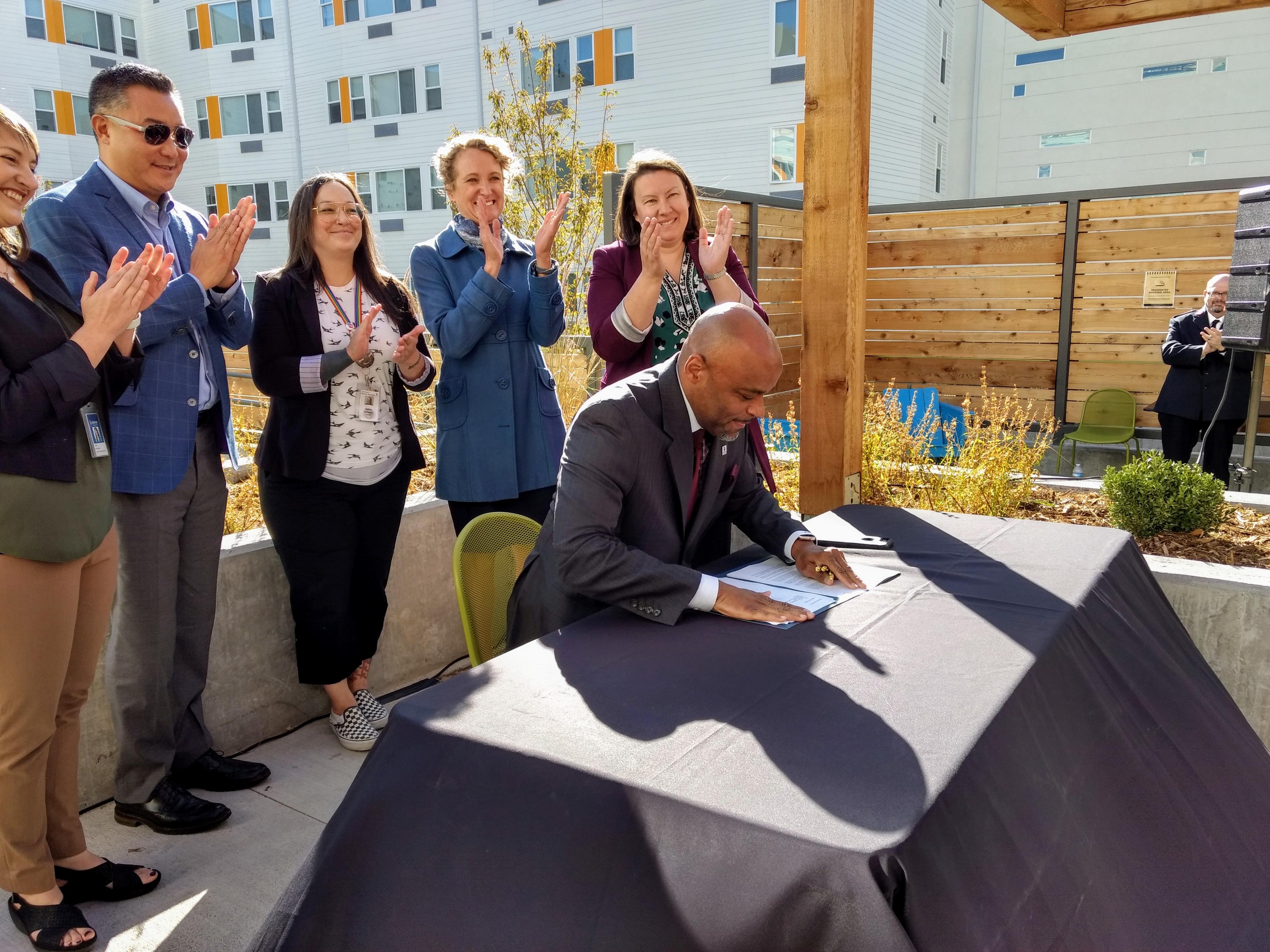Mayor Michael Hancock signed an executive order Wednesday establishing Denver's newest department, one that he pledges will better coordinate housing policy in a city struggling to transition people experiencing homelessness to stability and to safeguard and build on a stock of homes that moderate and low-income residents can afford.
The new department is called Housing Stability, dubbed HOST by city officials, and is led by Britta Fisher. Fisher had been chief housing officer in Denver's economic development department since June of 2018 and also has worked for housing and economic development nonprofits and served on the state Housing Board.
Fisher, Hancock, other city officials and leaders of organizations that provide shelter and housing gathered at the new home of The Delores Project shelter for the signing ceremony.
Fisher called the nonprofit's patio a "perfect setting," noting the site includes the 60-bed shelter for women and transgender people, 35 apartments for people exiting homelessness who receive mental health services, and the 95-unit Arroyo Village for households earning no more than half the area median income.
City money supported the shelter-to-housing campus, which was completed this year.
Fisher said she would spend at least half a day each month at housing and homelessness programs "hearing directly from the people impacted."
The housing department combines government divisions once embedded elsewhere.
The department combines economic development staffers with employees from Denver's Road Home, which has been part of Denver Human Services and coordinates support for people experiencing homelessness.
The new department was launched Wednesday with 40 full-time positions and is slated to grow to 60 in 2020.
Hancock first announced he was forming the department in April during an annual forum the city holds to bring together housing experts. He said Denver needed "tighter coordination" and clearer leadership to tackle its housing crisis. The city auditor and nonprofit agencies serving people living in homelessness had made similar critiques.
The new department takes over, among other things, stewardship of about 1,400 homes that should have been sold to people earning less than the area's median income.
Because of oversights by the Hancock administration, more than 300 homes slipped out of the program. The city has resolved a growing number of cases. In some cases, owners who had broken the rules by renting out their homes moved back into them as primary residences.
Heather Lafferty, who chairs the city's Housing Advisory Committee and is CEO of Metro Denver Habitat for Humanity, said at Wednesday's signing ceremony that creating a department to focus solely on housing will enable the city to move "more efficiently and effectively" toward ensuring all its residents are adequately housed.
Cuicatl Montoya, an employment specialist for the nonprofit Work Options for Women and a volunteer member of the Advisory Committee for Housing People Experiencing Homelessness, urged officials to tackle systemic issues leading to homelessness and housing insecurity. Denver and the rest of the country are grappling with housing costs increasing faster than wages, and with the legacy of racism and other forms of discrimination that have limited opportunities for some.
Hancock said Wednesday that the issue was personal for him, recounting his own family's struggles to find secure housing when he was a child. Moving into public housing eventually gave him stability, he said.
"The power of putting a safe, secure roof over someone's head, particularly a child, changes their life," he said.
Hancock said the city would invest $97 million to address housing and homelessness in 2020.













